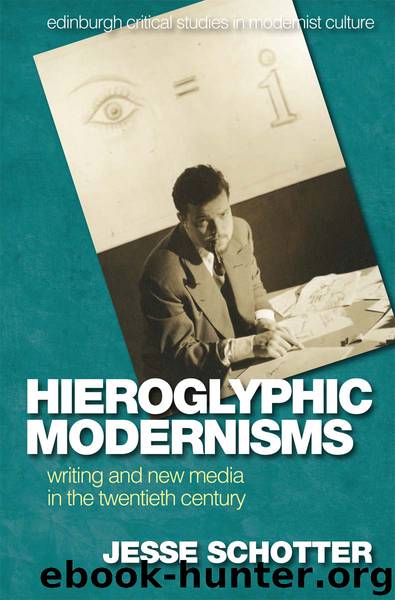Hieroglyphic Modernisms by Schotter Jesse;

Author:Schotter, Jesse;
Language: eng
Format: epub
Publisher: Edinburgh University Press
Figure 4.1 Image from al-Mummia (dir. Shadi abd al-Salam, 1969, Egypt)
But while al-Mummia, and Abd al-Salam’s comments about it, may seem to present an unambiguous Pharaonicist view, the context of the film – which is made after and set before the British colonial occupation – stresses not Western colonialism but rather the divisions within Egypt itself: as Iman Haman writes, the film captures ‘a vision of an Egypt fragmented by geography and class’, an Egypt torn between Upper and Lower Egypt.72 The film thus provides an interesting contrast with The Return of the Spirit. While both texts share Pharaonicist concerns, the treatment of the Egyptian peasants is starkly different. For Muhsin in al-Hakim’s novel, the trip away from Cairo involves a re-acquaintance with the roots of Egyptian culture, with the peasants attached to the wellsprings of an ancient Egyptian past that can provide a model for a nationalist and united future. Al-Mummia presents a radically different vision: the Hobarat, structurally similar to the peasants of The Return of the Spirit – rural, uncultured, Southern – are not the inspiration for a renewed connection to the Egyptian past, but rather are alienated from that past and distanced from and distrustful of the cultural and governmental leaders in Cairo. The film thus seems to reject the Orientalist celebration of an authentic timeless peasantry that al-Hakim invokes. Instead of the South teaching the North the lessons of nationalism and Pharaonicism, the North must teach the South. Of course, the treatment of the peasants by al-Hakim and Abd al-Salam represent two sides of the same coin – whether seeking to condemn the Hobarat for their amnesia or celebrate them for their ‘spirit’, both figures seek, in Elliott Colla’s words, to ‘subordinate the South to the needs of the North’, to bring the south of the country under the imaginative and discursive control of Cairo.73
Al-Salam’s film thus echoes another strain of Orientalist discourse: the Cairean leaders are the benevolent civilisers who must appropriate and remove the legacy of the Pharaonic past so that it will not be despoiled and sold, so that it may be preserved for posterity. In other words, the Caireans function in the same position as the English or French in the colonial era (indeed, the movie begins with Maspero, an actual European). The film displaces the metropole-colony binary of Orientalist discourse: instead of Paris or London as metropole to Cairo’s colony, now Cairo has become the metropole to Upper Egypt’s colony.
The film is actually far more ambiguous about the removal of the mummies from the Hobarat tribe, however, than Abd al-Salam’s comments about the film would have us believe. The final procession of the mummies out of their hiding place echoes the funeral scene early in the film and is attended by hundreds of Hobarat tribespeople in a kind of mourning. The film then ends with a freeze-frame of the ship carrying the antiquities back to Cairo disappearing from view; these relics are not, in the film, enshrined for posterity, but simply taken away.
Download
This site does not store any files on its server. We only index and link to content provided by other sites. Please contact the content providers to delete copyright contents if any and email us, we'll remove relevant links or contents immediately.
Call Me by Your Name by André Aciman(20517)
Ready Player One by Cline Ernest(14675)
How to Be a Bawse: A Guide to Conquering Life by Lilly Singh(7486)
Wiseguy by Nicholas Pileggi(5786)
The Kite Runner by Khaled Hosseini(5180)
On Writing A Memoir of the Craft by Stephen King(4944)
Audition by Ryu Murakami(4930)
The Crown by Robert Lacey(4817)
Call me by your name by Andre Aciman(4684)
Gerald's Game by Stephen King(4654)
Harry Potter and the Cursed Child: The Journey by Harry Potter Theatrical Productions(4507)
Dialogue by Robert McKee(4405)
The Perils of Being Moderately Famous by Soha Ali Khan(4220)
Dynamic Alignment Through Imagery by Eric Franklin(4217)
Apollo 8 by Jeffrey Kluger(3709)
The Inner Game of Tennis by W. Timothy Gallwey(3687)
Seriously... I'm Kidding by Ellen DeGeneres(3634)
How to be Champion: My Autobiography by Sarah Millican(3593)
Darker by E L James(3516)
